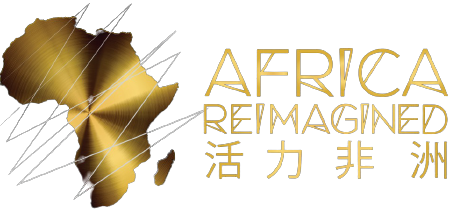
Helping African Brands Enter the Chinese Market
Quick links
Menu
Menu

Last month, Africa Reimagined took part in a promotional shopping festival for African products in China called the: “4th Brand and Quality Online Shopping Festival and Quality African Products Online Shopping Festival.”
From April 28th to May 12th, the Chinese Ministry of Commerce (MOFCOM), jointly with the Ministry of Foreign Affairs, launched the promotional shopping festival for African products in China which saw more than 100,000 African brands and their products being showcased and sold on over 300 e-commerce platforms across China, as well as offline events held in exhibition centres in 4 Africa-China free trade zones in the provinces of Hunan, Hubei, Henan and Zhejiang. Total sales were reported to reach over $3 million USD on the e-commerce sales platforms alone and millions of Chinese consumers engaged with the video and livestreaming campaigns. The festival consisted of:

(Offline displays of premium African products in Gaoqiao Market in Hunan province including Oye, Monks Gin, Kazi Yetu and Rwanda Bean).
Africa Reimagined supported many of our clients (high-end African brands) with participating in these online and offline events throughout the shopping festival including Monks Gin (premium gin from South Africa), Oye (handmade footwear and accessories from Kenya), tea from Tanzania (Kazi Yetu), Rwanda bean (roasted coffee from Rwanda) and Kazi Yetu (tea from Tanzania).
This was not the first African products promotional shopping festival to be held in China, but this year’s was certainly the first of its kind because it focused so heavily on using digital sales and promotion platforms and tools rather than offline business match-making and promotional events.
It also promoted a wider variety of premium African products and brands than ever before including high end fashion and jewellery and beauty products.
Why create online promotional shopping festival for African products in China?
Chinese consumers are only just getting to know about African products and brands. Until only just a few years ago, Chinese consumers knew about few, if any, African exports beyond oil and minerals. Fast forward to 2022 and South African wine and East African coffee have become hugely popular amongst Chinese consumers and can be found in online and offline retailers across China. African wine and coffee are also helping to raise awareness of and boost the popularity of other African products, such as Rwandan chili oil, Ghanian chocolate, Tanzanian cashews, and Shea butter and aloe vera skincare products.
Online promotional shopping festivals and livestreaming events are the key to raising awareness of and driving the demand for a wider range of African products amongst Chinese consumers. Chinese consumers shop almost solely online, which has led to the Chinese e-commerce market becoming the most lucrative and diverse in the world.
Livestreaming is also becoming an increasingly powerful sales and promotion tool in China. Live streaming e-commerce grew by 160% in 2020 and generated a massive $300 billion in sales in 2021. During a live streaming event featuring Austin Li, China’s top live streamer, and Ethiopian Ambassador to China, Teshome Toga, 11,292 bags of packed Ethiopian coffee sold out in just 5 seconds.

(Livestreaming event hosted by Kiliselect to promote premium African products during the festival).
Shopping festivals are also becoming a key tool to help implement a growing number of Sino-African government-led initiatives to boost Africa to China trade of specifically value-added African products.
This is because in the build-up to the 8th Forum of China-Africa Cooperation (FOCAC8) in September 2021, African leaders and African ambassadors in China sat down with their Chinese partners to present Africa’s development goals for the coming years and their top priorities for the outcome of FOCAC8 of which increased value-added Africa to China trade was a key focus. These meetings contributed to a number of trade-boosting initiatives that were announced by President Xi Jinping at the FOCAC8 summit in Senegal, including:
“The Digital Innovation Programme” – Online shopping festivals promoting African products and a campaign to market 100 African stores and 1,000 African products on e-commerce platforms are promised.”
Will there be more online promotional shopping festival for African products in China?
Definitely! African and Chinese leaders recognise that cross-border e-commerce is playing a crucial role in boosting Africa to China value-added trade, which is set to be top of the Sino-Africa agenda for years to come.
China’s ecommerce market is only becoming bigger and more diverse, which means Africa-China trade cooperation initiatives will increasingly focus on utilising e-commerce platforms.
For example, in the build-up to and during the eagerly awaited China-Africa Economic and Trade Expo in 2023, sales, promotional and business events will increasingly shift from offline events to a series of online shopping festivals and promotional events on China’s biggest social media platforms.
A growing number of partners focused on facilitating Africa-China trade are also turning to e-commerce. For example, the International Trade Centre has partnered with Alibaba to promote African brands on Alibaba’s top e-commerce sales platform, Tmall.
Finally, there are now also an increasing number of e-commerce shops dedicated to selling premium African products, such as roasted nuts and coffee, tea, wines and spirits, fashion and jewelry, skincare and homeware on China’s biggest e-commerce platforms, including JD.com, Tmall and WeChat.
Visit the Africa Reimagined website to learn more about how we can help your brand participate in future promotional shopping festivals or to book your free consultation.

Helping African Brands Enter the Chinese Market
© Copyright 2024 All rights reserved